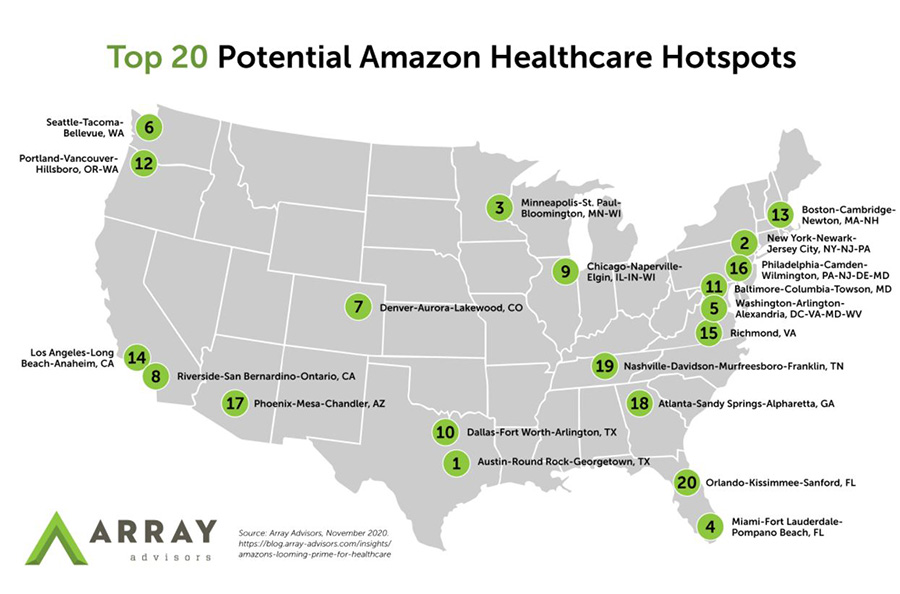Amazon’s entry into health care has created considerable speculation because the tech giant has its toes in so many health care-related waters.
Amazon is poised to become the “fastest growing health care company in the world in two to three years,” Scott Galloway, a Professor of Marketing at NYU Stern School of Business, told CNN this week.
Galloway supported that assertion by citing the tech giant’s unprecedented ability to reach consumers digitally and on demand.
While that has become critical during the COVID-19 pandemic, it’s only one aspect of Amazon’s growing presence in the health care sector.
Where Amazon is already a player in health care
Amazon thus far offers consumer-facing businesses: its $750 million purchase of PillPack, the Halo wearables line and Alexa, which is HIPAA compliant and is used by health systems, apps and insurers to answer questions, make appointments and engage in other services for patients. On the PillPack front, Amazon recently announced it was offering prescription medications for home delivery through a new online drugstore, promising Prime members two-day delivery and discounts of up to 80 percent.
Amazon also collaborates with health care providers, payers and life sciences organizations through its Amazon Web Services (AWS) cloud computing platform. It has made significant investments with health care enterprises to test artificial intelligence tools via AWS.
Then there are heath care services for its employees. This includes Amazon Care, which is a mobile application that allows its employees to access virtual and in-person services from Care Medical. Also, Amazon announced in July it was opening 20 health clinics for its employees in five cities across the U.S in partnership with Crossover Health. The first centers will be located in Dallas, Phoenix, Louisville, Detroit and San Bernardino.
Read more: Four primary care disruptors discuss retail, COVID-19 and more
The biggest splash Amazon has made to date, however, was the self-managed health plan it created with JPMorgan and Berkshire Hathaway—a company called Haven. This venture, because of the companies involved and the hiring of famed surgeon Atul Gawande, MD as its CEO, received considerable initial attention. Since then, however, Gawande and others have left the company, and the excitement has quieted down.
Exactly what Amazon and its partners will ultimately achieve with Haven remains to be seen but the company has potential to move into a number of markets across the U.S. with its range of services.
Cities in which Amazon could establish a presence
Array Advisors, a health care facility design and consulting firm, predicts the company will become a “comprehensive, digitized health care provider of the future.”
Array suggested that Amazon will start an Amazon Prime for health care combining services offered by Amazon Care, the online pharmacy and prescription delivery side, Halo wearables, the neighborhood health clinics, and third-party software.
In terms of where potential Amazon health hotspots could emerge, Array says that it would make the “most sense that the ‘Prime’-type offering we’re imagining will first be tested in markets where Amazon is establishing its Amazon Care and neighborhood health centers for its employees, but those are not the only factors to consider.”
Array’s Catherine Castillo and Neil Carpenter lay out other variables in determining the top 20 Amazon health care hotspots, including area need, economics, market willingness and existing footprint.
The above map predicts 20 Amazon health hotspots based on that criteria. Or view Array’s interactive version of the map and associated data.










